6. Portrait of a Young Girl at the End of the ’60s in Brussels (1994)
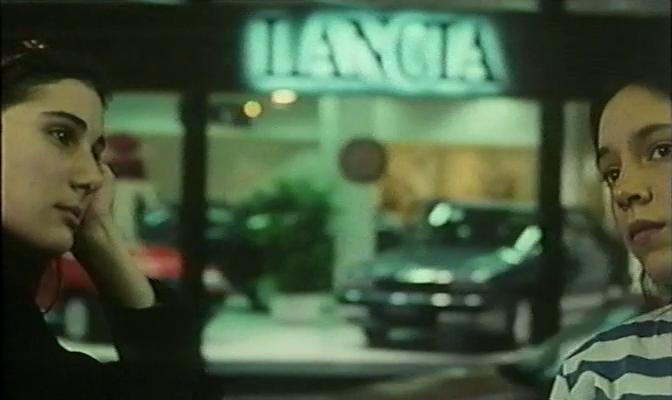
As part of the same 7 ARTE series as Claire Denis’ better-known TV-movie US Go Home, Akerman fictionalized a chapter of her own youth in the coming of age Portrait of a Young Girl. We are introduced to Akerman’s troublemaker Michelle (Circe Lethem) writing herself a sick note to skip class with, revised into a death of her father note before a death of herself note, being finally torn up and discarded altogether – she may never go to school again.
A film of youthful disaffection in the French style, Akerman almost recalls Robert Bresson here (Akerman’s “second cinematic shock [after Godard]”) and his late portrait of Parisian youth in 1968 The Devil Probably, that same kind of story of ambling angst channeled into philosophical debate, though here more as a sign of Michelle’s own precociousness lightly ribbed than as the actual thematic heart and directorial interest in the film, which has less to do with the answers to Michelle’s questions than her own self-development through them.
Michelle spends her hooky day loafing about Brussels cafes, at the movies, browsing stores and shoplifting, and meeting separately with friends Paul (Julien Rassam) and Danielle (Joelle Marlier) with whom she carries different conversations and flirtations. Paul looks no older than Michelle, but walks around in a suit and claims to be an army deserter. They talk Kierkegaard and revolution and steal a Leonard Cohen record, whose “Suzanne” serves for the film’s central soundtrack. The night builds to a neighborhood party, a dance full of great expectations where the slow burning theme of Michelle’s sexuality comes to the surface – 1960’s Belgium, Michelle is in love with Danielle but can only get Paul, can only suffer to herself when her advances aren’t even given the closure of rejection going unnoticed.
Unlike Denis’ minimalist 1950’s Akerman makes no attempt to cover up the 1990’s her film was shot in, even embracing it, foregrounding CRTs and having the characters casually flip through compact discs at the record store – a freeing disregard for convention that makes this both a nice time capsule of Belgium in the mid-90s while still somehow selling the 1960’s of its insular dramatic world.
7. Les Rendez-vous d’Anna (1978)
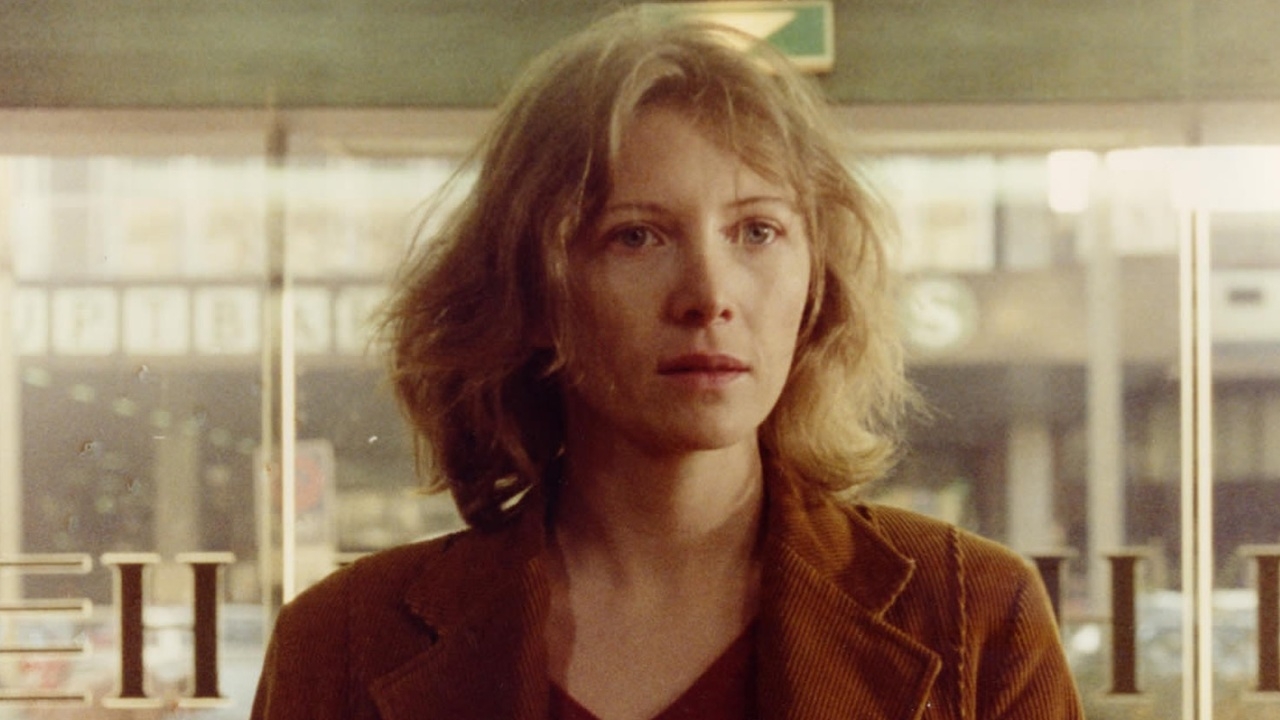
The first of Akerman’s ventures into autobiography was not so retrospective as Portrait of a Young Girl, but was instead an 8½-ish portrait of the auteur as she was in ‘78, a young director still hot off the success of Jeanne Dielman and something of a working nomad, in a perfect mix of character sketch and unconventional travelogue.
Aurore Clément’s Anna is here Akerman’s stand-in, travelling from West Germany through Belgium and France promoting her new film, like Lost in Translation without the Scarlett Johanson character to bring Bill Murray any relief. Instead we see only her loneliness and failure to connect with those around her, even as they define and idealize her as a great director, fount of sympathy, and object of desire and tell her how great it is to be each of those things. Home at last she meets an answering machine full of messages she listens to one after another with no response to any. No promises or apologies left to make.
All along it is the underside of travel we see, not the extravagance of landmarks and monuments, houses of culture, but the cabins of trains, transit stations, dark streets and rolling hills, sickly fluorescent lights, and railyards, workers in early morning.
8. Golden Eighties (1986)
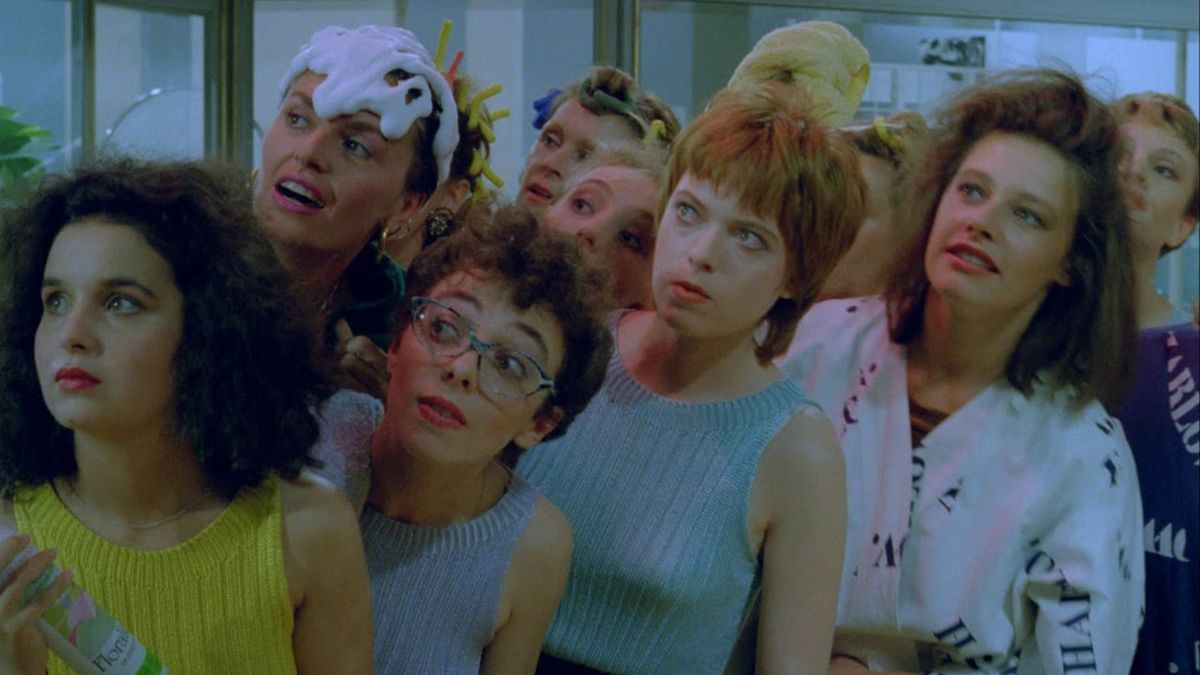
Akerman’s first major departure from her arthouse reputation was Golden Eighties, an earnest leap into musical-comedy is this ode to Jacques Demy and the American technicolor classics, playing with a comedic side seen as early as Blow Up My Town and pretty much repressed through the seventies thereafter.
A comedy of the oldest kind it traces schemes and relationships of a real 1980’s mall-as-town-square setting that reminds of movies like True Stories or Fast Times at Ridgemont High and where characters from all across the subsets of the mall ecosystem – from mall rats to retail workers and store owners, all meeting on a common ground of consumption and gossip. Among the stories explored are the tangled web of love affairs between hairdressers Pascale (Pascale Salkin) and Mado (Belgian popstar Lio), storeowner’s son and mall hood Robert, manager Lili (Fanny Cottençon), and salon owner Jean (Jean-François Balmer), as well as the reunion of the American Eli (John Berry) and the now-married, Polish Jeanne (Delphine Seyrig), who had been lovers during the second world war and had not seen each other since, and the attempts of a M. Schwartz (Nicolas Tronc) to blackmail Jean out of his salon.
The musical set pieces have a simple choreography and scrappiness to them that end up being – against the meticulous cinematography, for which Akerman carries over many of the signatures of her avantgarde eye – where a lot of the film’s charm ultimately comes from. For Akerman, the easy earnestness and commercial fun of Golden Eighties was itself a kind of revolt against all the self-seriousness and ego of the arthouse and the corner Akerman as a filmmaker was beginning to be put in.
9. From the East (1993)
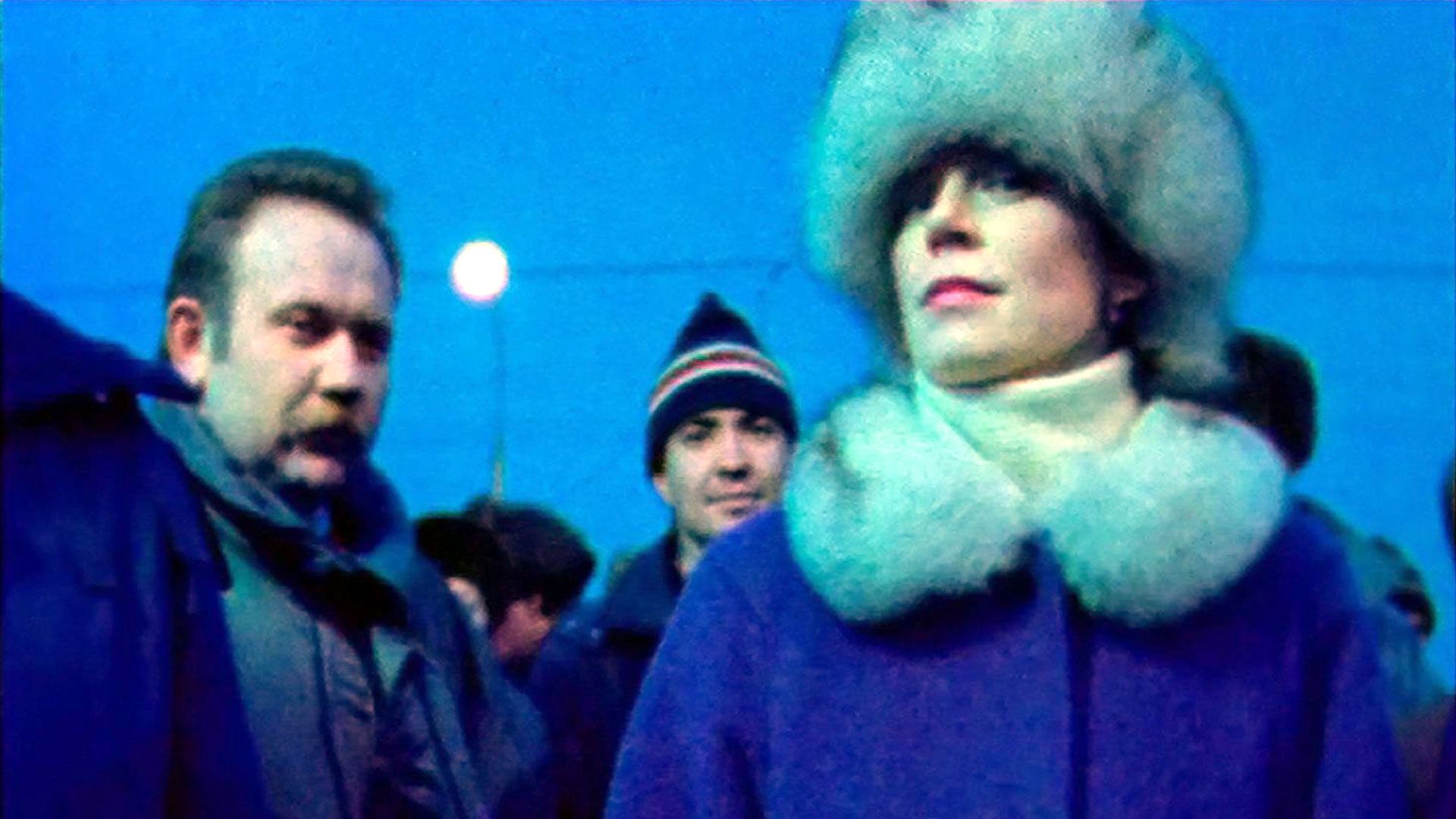
A wordless journey through post-Soviet Eastern Europe – from East Germany through Poland to Moscow, and summer to winter of 1992 – From the East is the feature film version of a work also shown in a simultaneous, 24-screen art installation, and the first of Akerman’s pictorial-political documentaries that she would continue with Sud, From the Other Side, and La Bas.
In scenes of displacement and exodus a year on from the Soviet Union’s fall, D’est observers figures packing all they own to bus and train stations, huddled in loose groups and waiting in long lines in station halls and cold night, and stubborn homesteaders who refuse to let outside powers force them to change, passing the time in idle hope. Akerman has returned to her exiled world of travel but now far from the personal journey of the sensitive artist, she rediscovers this imagery in the realm of History and the collective struggle of an entire generation across national and cultural borders.
Though Akerman spoke of her desire not to make a personal film of D’est – something compounded by the detached nature of documentation, without interview, narration, subjective closeup, or geographic orientation – one can’t help but see the double-sight Akerman sees in the mass movement of these figures condemned to flight.
10. No Home Movie (2015)
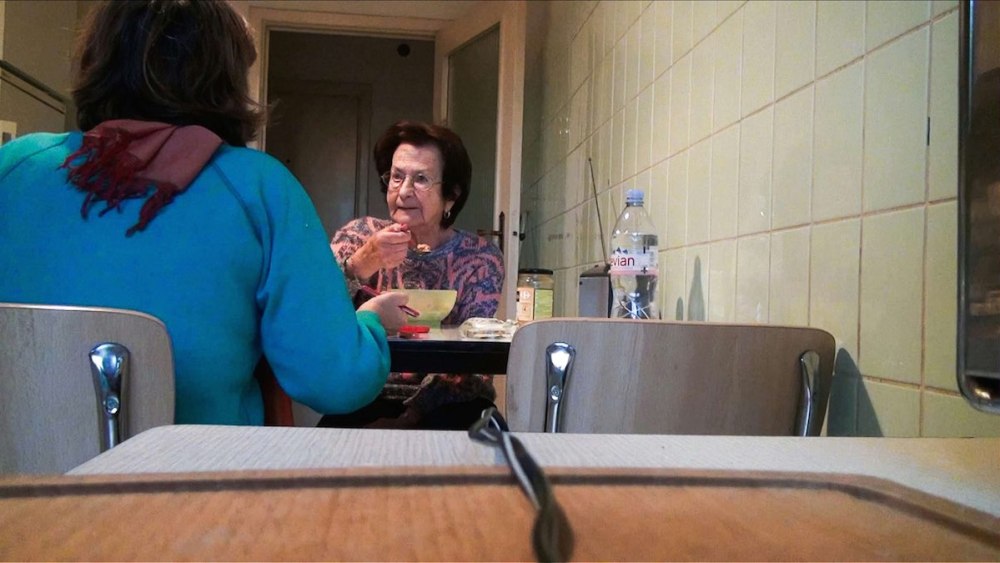
Akerman’s final film No Home Movie is a difficult and personal work as a documentary portrait of her mother Natalia – who had never been far from her work, a source for Jeanne Dielmann and News from Home, appearing in All Night Long, and fictionalized in Les Rendez-vous d’Anna – shot shortly before her death in 2014, and released the same year as Chantal took her own life which it is hard not to let color the film as a meditation on final things.
No Home Movie sees a total whittling of the form, shot on DV – though meticulously framed as ever – it is an assemblage of footage of her mother going about chores in her Brussels apartment, informal snippets conversations between Chantal her mother and her sister Sylvaine – both in person and long distance over video call for which Akerman declares “there are no more distances” – and decontextualized images taken from the road, with a mid-film detour to the austere and empty desert plain – the great blank slate and whole big nothing Akerman had from the very beginning had her eye on.
Some scenes appear to be set up like talking head interviews, but there can be no grand commemoration or reflection, no final family history, or bringing forth her mother’s stories of the holocaust, there is only a gesture toward something Chantal seems unable to bring herself to interrogate, – when asked why she is filming she insists “I film everything”, probably true and yet a deflection – and maybe this is the film’s final message, the inability for a document to ever capture the whole of the person, to make any final word that is not reductive and untrue – instead we see the banal surface of a mother’s love in her rumination on potatoes and ice cream, and her hesitance to hang up a Skype call.
Not only a film of her mother’s aging, No Home Movie is also Chantal’s reflection on her own age, on the development, death and rebirth of the film medium in her time, from photochemical to digital, and from elitist artform to ubiquitous communication technology, an artform miniaturized and democratized, globally integrated and accelerated — the poet of time and space in a world that seems to have transcended both. But in spite of our tendencies toward narrative this is no final statement or culmination of Akerman’s career any more than it could be of her mother’s life, only a glimpse of where it left off.